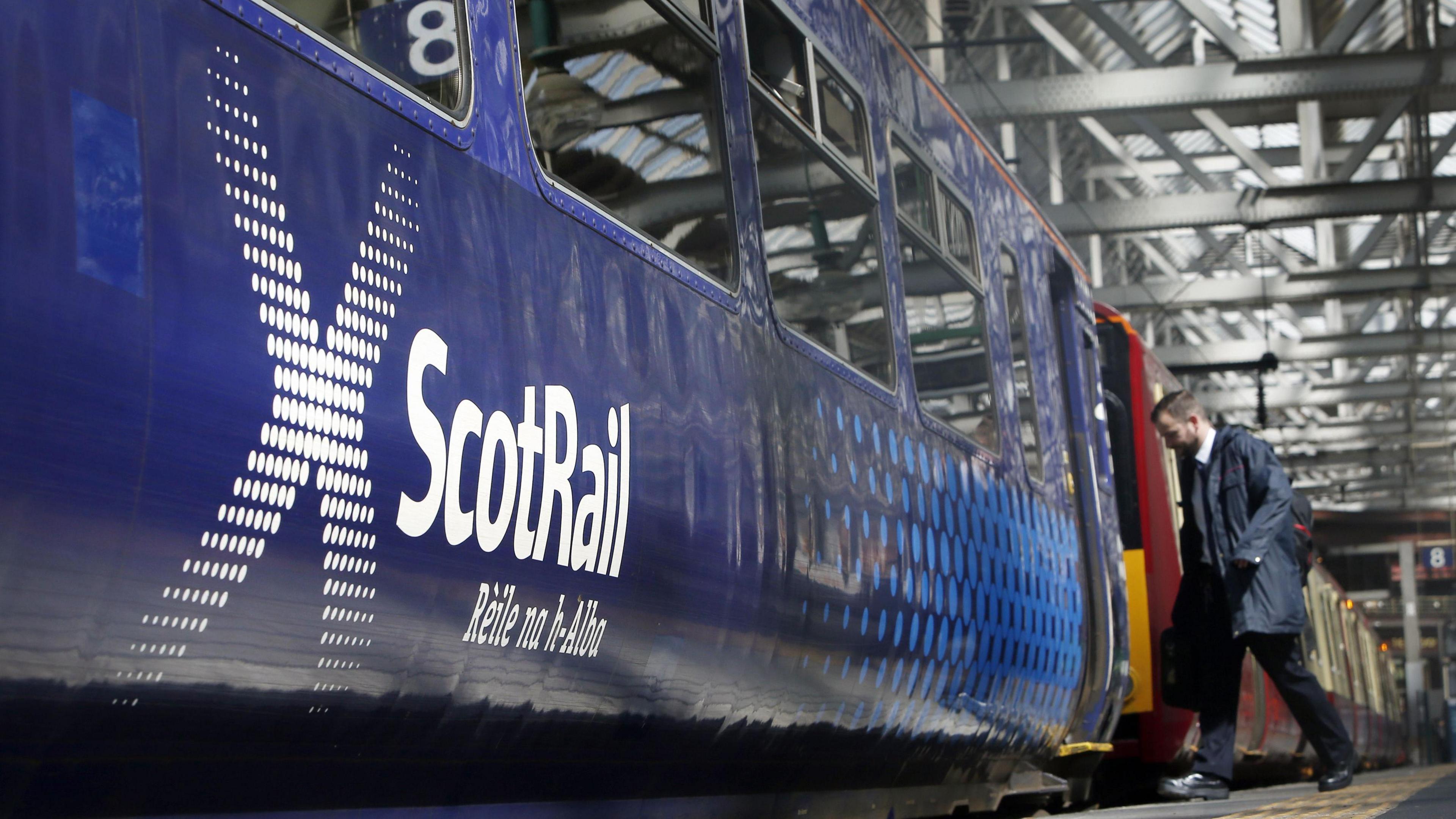Scottish government defeated in free school meals vote
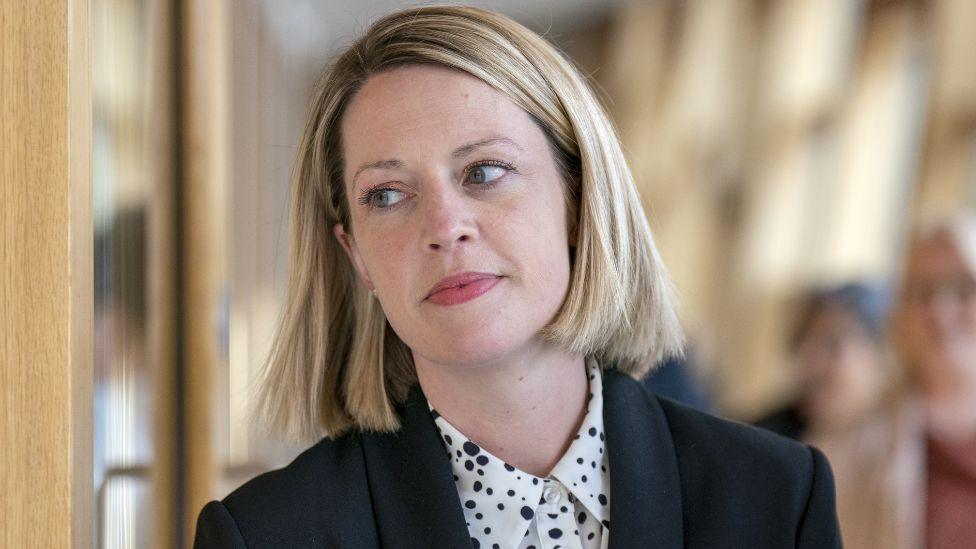
Education Secretary Jenny Gilruth says the government cannot afford to provide free school meals for all primary pupils
- Published
The Scottish government has been defeated in a vote calling on ministers to expand free school meals to all primary school pupils.
Parliament also backed another non-binding motion calling on the SNP administration to reverse its decision to reintroduce peak rail fares.
Education Secretary Jenny Gilruth said the government was committed to the universal rollout of free school meals in primary schools but the funding was not available due to significant financial pressures.
The government said the expansion would be limited to P6 and 7 pupils in receipt of the Scottish Child Payment after First Minister John Swinney confirmed £500m of cuts.
The government said it would need to plug a £256m funding gap to provide free meals to all primary pupils, which it said can cost families £400 a year.
It cited "prolonged Westminster austerity and record high inflation".
Scottish Conservative education spokesperson Liam Kerr submitted a motion calling on the government to give free school meals to all primary pupils this parliamentary session "as promised".
He told MSPs the SNP had "shamefully betrayed Scotland’s poorest pupils".
The non-binding motion passed by 64 votes to two, with 60 abstentions.
The SNP unsuccessfully lodged an amendment committing the government to providing free meals for all pupils “when the budgetary positions allows”.
The government lost its majority in parliament after ending a power-sharing agreement with the Scottish Greens, meaning it has to rely on opposition MSPs either siding with it or abstaining to win votes.
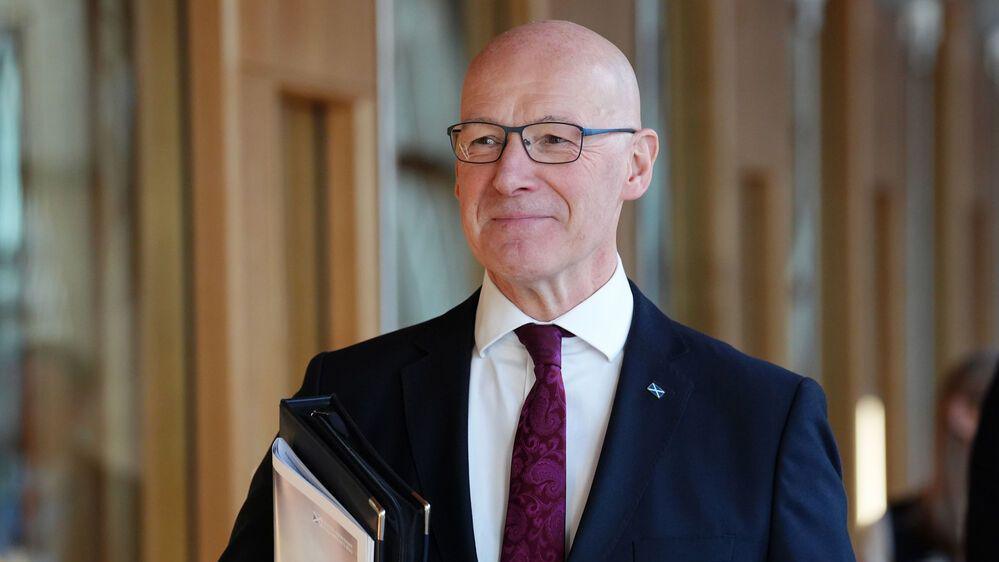
John Swinney confirmed his programme for government last week
MSPs also backed a Scottish Conservatives motion calling on the government to reverse its decision to end a scheme that scrapped peak-time rail fares.
An amendment proposed by Transport Secretary Fiona Hyslop removed that call and instead stated the trial without peak fares had been ended reluctantly due to “the fiscal constraints chosen by successive UK administrations”. It did not receive the support of parliament.
MSPs did support a Scottish Labour amendment that said making public transport more accessible, affordable and reliable was the key to increasing passenger numbers.
The ScotRail pilot, which saw ticket prices subsidised by the government and standardised across the day, will end on 27 September.
On Scotland's busiest route, between Edinburgh and Glasgow, the price of a rush-hour ticket will rise by £14.90 to £31.40.
The government said there had been an increase in passenger levels of about 6.8% during the pilot but it would need to be 10% in order for the policy to be self-financing.
During the debate, Ms Hyslop argued the Scottish government could not justify the subsidy after the scheme did not result in a "large-scale switch" from cars to train.
Tory MSP Graham Simpson said the decision would cost Scots thousands of pounds.
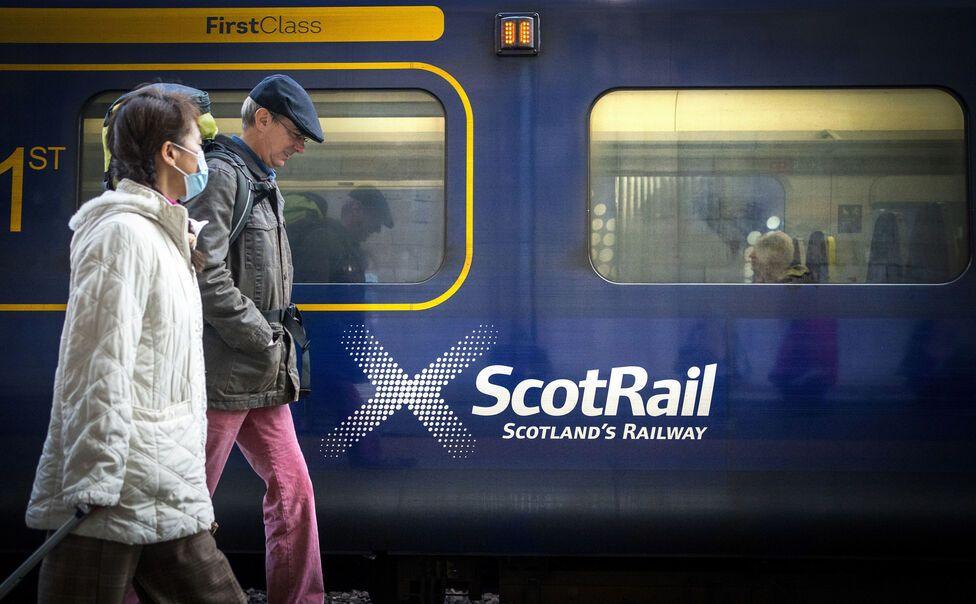
The Scottish government said could not justify maintaining the rail fares subsidy
Children’s Commissioner Nicola Killean said the rollback on universal free school meals was a "broken promise to children" and warned that the move would only exacerbate stigma and shame around them.
Ms Killean said that going to school hungry could "severely impact development in childhood and into adulthood".
She said: "Providing access to universal school meals is vital: it helps reduce stigma and reinforces the understanding of food as a human right.
"We know that children who experience food insecurity are more likely to experience poor health, obesity and malnutrition, as well as other challenges to their physical and mental development.
“One of the greatest barriers to the take up of school meals are feelings of shame and stigma, and only providing meals to Primary 6 and 7 in receipt of the Scottish Child Payment just exacerbates that stigma."
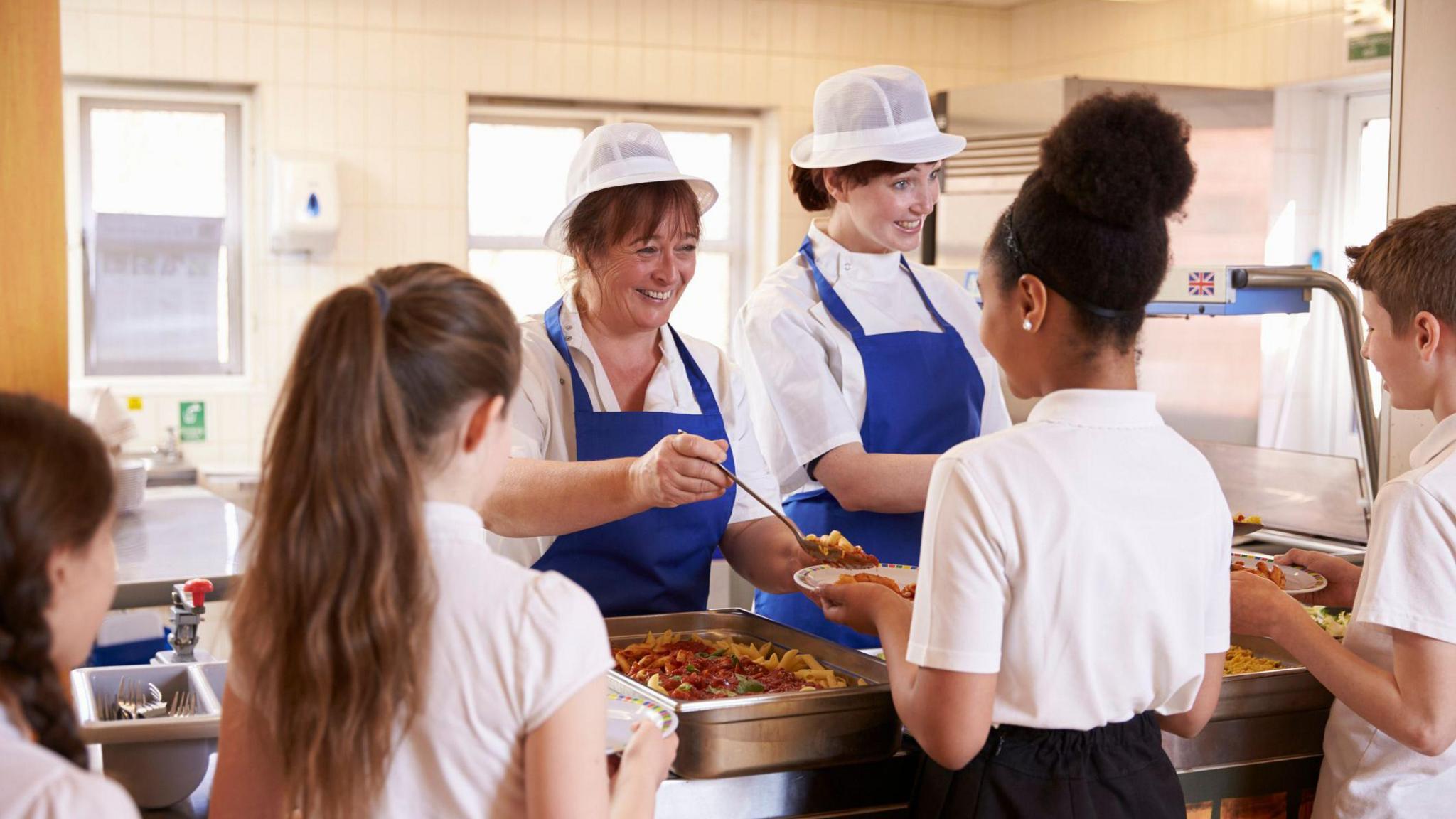
The government previously pledged to expand the provision of free school meals
Ms Killean went on to say she had heard stories of some children buying extra food to share with their poorer classmates, while teachers were also stepping in to help those who could not eat.
Labour’s education spokesperson Pam Duncan Glancy said the public was “tired of excuses” from the Scottish government, which she accused of failing to meet its manifesto pledges.
Greens education spokesperson Ross Greer accused the government of a "shameful U-turn" on a policy his party had supported when in government.
He said it did not need to be “inevitable”, suggesting the government could make savings by freezing spending on trunk roads and motorways, and reforming the small business scheme, external.
He also accused the Conservatives of hypocrisy, citing footballer Marcus Rashford’s successful campaign to force the then-Tory UK government into providing free school meals for children in England during school holidays.
'Failed to deliver'
Scottish Liberal Democrat communities spokesman Willie Rennie said: “Nicola Sturgeon, Humza Yousaf and John Swinney all committed to universal free school meals for primary pupils, but they have all failed to deliver."
Education Secretary Jenny Gilruth told BBC Scotland News she did not contest the principle of the Conservative motion on free school meals but disagreed about how the government could afford universal coverage.
She said the funds were not available from within the education budget and the government was targeting support at those “most in need”.
The SNP minister said there was uncertainty about funding from the UK government, which is due to announce its budget next month, and accused the Labour administration of imposing austerity.
She added: “They don’t need to do that.
"It harms the value of the Scottish government budget and of course it does mean that we’re not able to fulfil commitments such as universal free school meal provision.”
During the debate, Ms Gilruth told MSPs that the Conservatives, Labour and Liberal Democrats had failed to propose “any credible” solutions to plug the £256m funding gap.
- Published4 September 2024
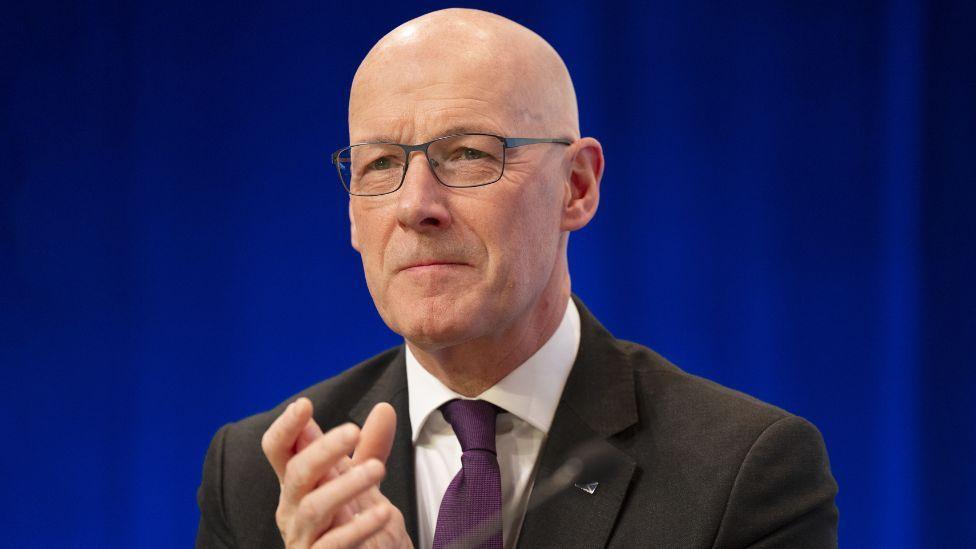
- Published3 September 2024
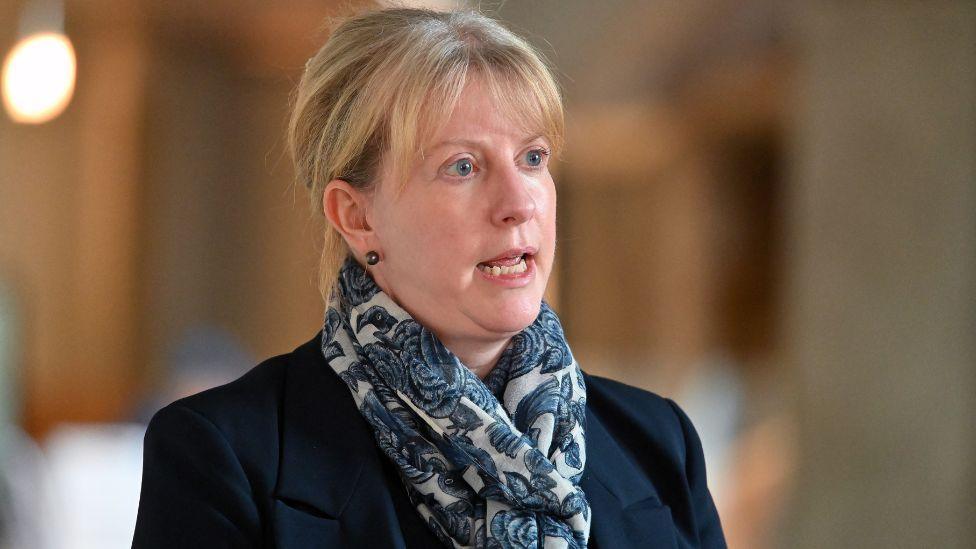
- Published20 August 2024
